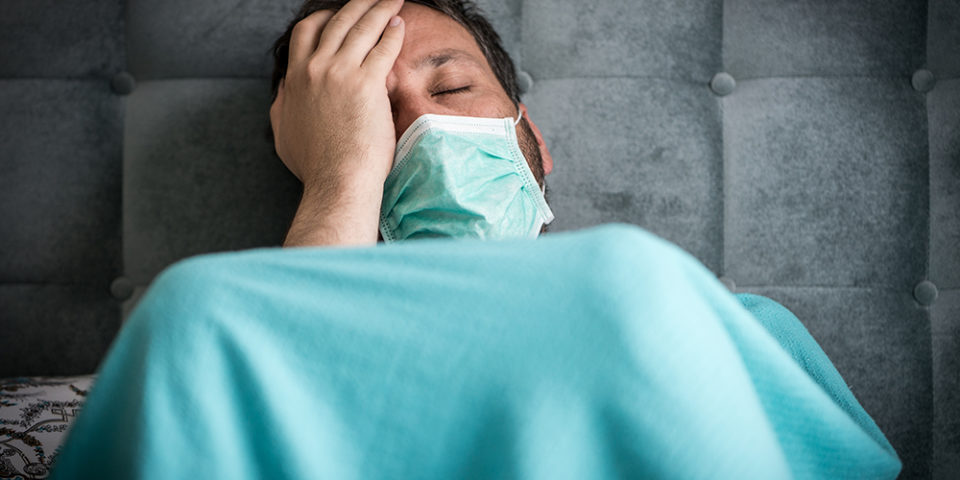What to do when someone in your house has (or might have) COVID-19
Your child wakes up with a scratchy throat and a fever. Or the coworker your spouse had lunch with yesterday has tested positive for the COVID-19 virus. What do you do? Infectious disease expert Divya Ahuja, MD, explained what to do if someone in your household is exposed or gets sick.
How to isolate if infected with COVID-19
If a person gets symptoms and is diagnosed as positive, they should isolate themselves in a room for five days with minimal contact.
After day five, if symptoms are improving and they have been fever free for 24 hours (without the use of fever-reducing medicine), they can leave isolation but should continue masking for another five days.
Dr. Ahuja said it is especially important to isolate from those who are pregnant, immunocompromised, older, or who have other comorbidities that would cause them to become much sicker. “It’s tough on family members and parents with small kids, but we all need to practice safe habits.”
According to the CDC, isolating in your house means doing the following:
- Live in a separate room or area and away from others. If you must share a space, open the window to increase air circulation.
- Take meals separately.
- Use a separate bathroom from the rest of the household, if possible.
- Avoid sharing personal items, such as dishes or towels.
- Avoid having visitors.
- Wear a mask if around others.
How to quarantine if exposed to COVID-19
Dr. Ahuja said quarantine is for people who have been exposed to the virus. They can mix with other people in the house but, depending on vaccination status, not go out in the community because they may be infected.
If you are caring for someone with COVID-19, it’s important to follow these CDC rules:
If you’re fully vaccinated and boosted or it’s not time yet for your booster:
- You don’t have to quarantine unless you develop symptoms.
- Wear a mask for 10 days.
- Get tested at day five, if possible.
If you’re not vaccinated or boosted:
- Quarantine for five days.
- Get tested at day five, if possible.
- Wear a mask until day 10.
If I’ve recovered from COVID, do I need to isolate from my family member who’s infected?
Dr. Ahuja said it depends on how long ago you had COVID. “Reinfection usually doesn’t happen within the first three to six months.”
If you were infected within the past three to six months and are an otherwise healthy individual, you do not need to isolate from your family member.
If it’s been more than three months since you were infected or if you are immune compromised, follow the isolation and quarantine rules.
How to treat COVID at home
For most people, symptoms will be mild and last a few days. Here are tips from the CDC on how to care for your loved one at home during this time:
- Help the person who is sick follow their doctor’s care instructions.
- See if over-the-counter fever reducing medicine helps.
- Make sure the sick person rests and drinks a lot of fluids.
- Watch for warning signs that may indicate they need emergency medical attention.
Be sure to protect yourself using these steps:
- Put on a mask and have the sick person put on a mask before entering the room.
- Clean and disinfect your home.
- Wash your hands often.
- Track your own health.
Have questions about the COVID-19 vaccine?
Find answers to frequently asked questions about the COVID-19 vaccine, including how to get the shot.


